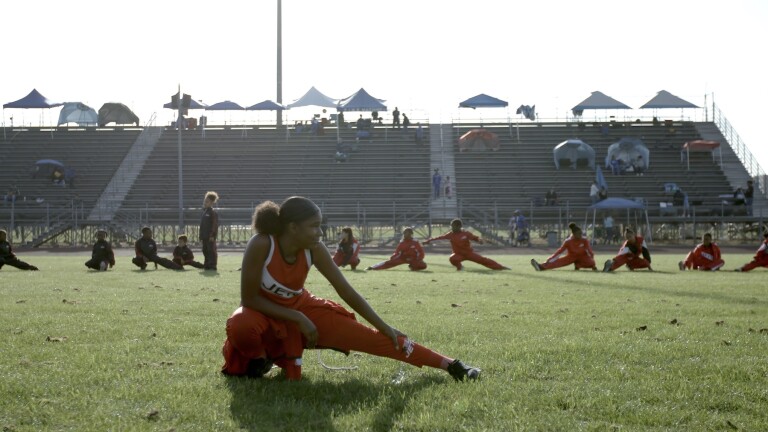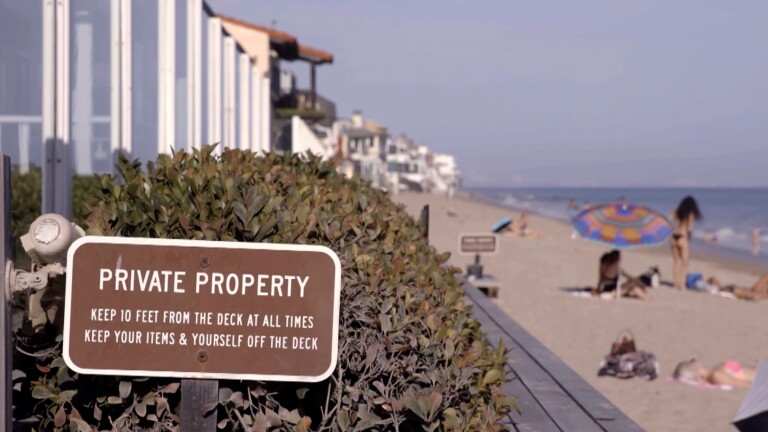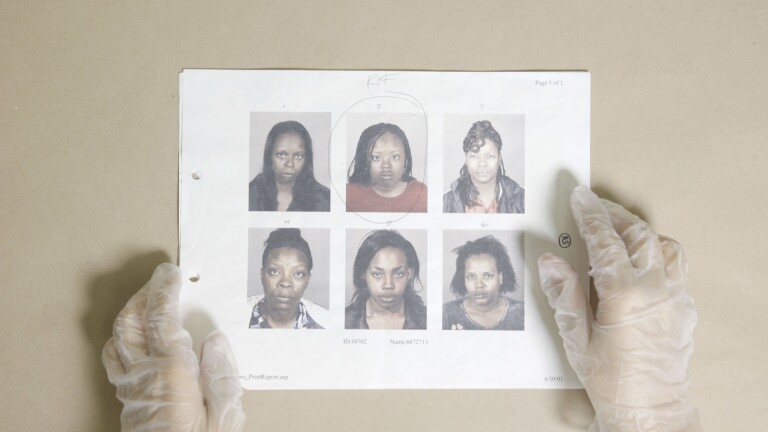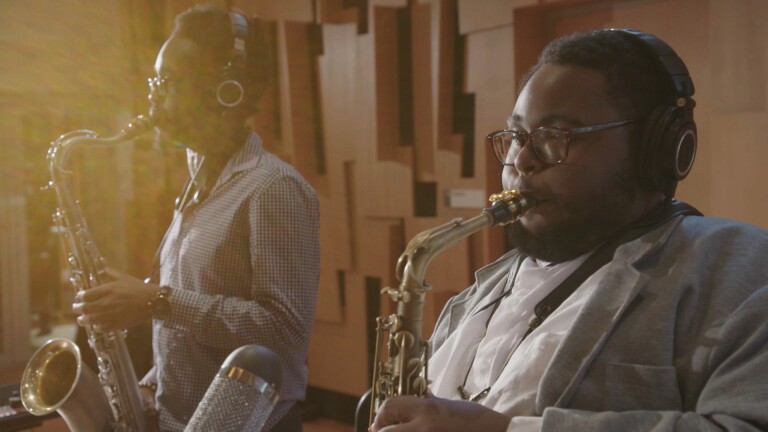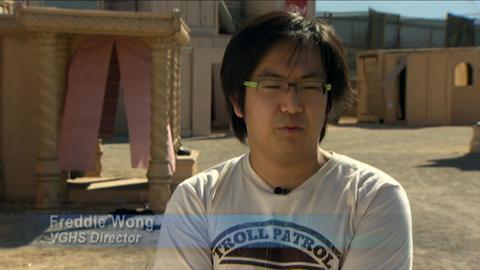
Start Me Up: Crowd Funding Gives Entrepreneurs a Boost
Entrepreneurs have good ideas and a lot of energy, but many of them don't have the money to get their ideas off the ground. Now there's a new way for start-ups to line up financing. It's called crowd funding, and the surprising thing is the money comes from people who believe in the products and don't expect to get a dime back. Correspondent Judy Muller has our story.
TRANSCRIPT:
Judy Muller: Of all the products you find on the grocery store shelves, perhaps the most common are condiments. So why would anyone think what the world needs now is another ketchup?
Laila Bowden and Erin Rosen/Krazy Ketchup Creators (together): Well...
Rosen: When our kids were toddlers they went through the phase of giving up vegetables and our kids loved dipping everything in ketchup.
Bowden: They mostly ate ketchup; it was like a meal to them.
Rosen: And we couldn't find a product that was, like, healthy on the market that tasted good.
Muller: Working out of their own kitchens in Pacific Palisades, Laila Bowden and Erin Rosen came up with a recipe for Krazy Ketchup. It's made of all natural ingredients: pureed sweet potatoes, carrots, butternut squash and tomato paste. It's sweetened with agave nectar instead of high fructose corn syrup. It's gluten-free, certified organic and kosher. And, so far, it's a hit.
Customer 1: It's very good.
Customer 2: It's very good.
Customer 3: It's really good.
Customer 1: Is it your own brand?
Bowden and Rosen (together): Yes it is.
Customer 1: Very nice.
Muller: The two friends, who had no prior business experience, sell their ketchup online and in organic markets, including PC Greens and Whole Foods, in four states. Now they want to turn that initial popularity into profitability.
Rosen: So we're just looking for a little help to get us going a little bit further.
Muller (to Rosen): You need a kick start?
Rosen: Exactly.
Muller: And so they turned to Kickstarter.com, a "crowd funding" site for creative people to get enough start-up money to launch their projects, from the artistic to the edible. Here's how it works: You describe your project with a video pitch and a dollar amount you want to raise.
Bowden (in clip from Krazy Ketchup video): Everyone asks us, what makes your ketchup so crazy?
Muller: In this case, $21,500, which is the cost of producing one "run" of Krazy Ketchup. And then you wait...
Muller (to Bowden): What was your reaction when you first saw that money coming in?
Bowden: Well, I was surprised because I had no idea of what to expect. I thought that it would actually be people that we knew. So to have people from all over the country putting in $20 and their comments that they would make - "way to go" and "what a great idea." I mean, it was just, it was an affirmation that our product actually was viable and a good idea.
Muller: If people pledge enough money to meet the goal by the deadline, Kickstarter takes 5 percent. If not, the Web contributors keep their money. Kickstarter and the entrepreneurs get nothing. It's a far cry from going to the bank for a small business loan.
Sanjay Sood/UCLA Marketing Professor: I don't think that it's replacing going to the business community but it's, it's another avenue that didn't exist before. So, especially with the Internet, it unlocks the power of the community. So if you can go to the community, why not?
Muller: Which raises a question: why do people invest in these projects when they get next to nothing in return...not even a tax deduction?
Sood: We all want to be part of a bigger effort, a bigger enterprise than what we do every day. So Kickstarter allows us to be something - part of something bigger.
Muller: Something bigger — and at the same time — more personal.
Muller to Bowden and Rosen: This is a product that wouldn't have been possible without the Internet?
Rosen: Absolutely not.
Bowden: That's so true. The Mommy Bloggers have latched onto our product and just spread the word. I mean they have been amazing.
Muller: Giving a kick start to a simple product like ketchup is one thing. But how about an over-the-top comedy action-adventure series — one designed just for the Web?
Freddie Wong is director of VGHS, or Video Game High School. The action series — now in production — is about characters who are locked inside the alternate reality of a video game. But the project is no game, it involves paid actors and location expenses.
Freddie Wong/VGHS Director: We make sort of Web videos as a full time gig. You know, I went to film school at USC and they said you can't really make short films and make a living from it. But with the Web now you can actually do that. You can make a living doing short films.
Muller: They already had a fan base from their weekly Web series. So asking for funding on Kickstarter for their more ambitious Web project seemed only natural.
They hoped to raise $75,000. Instead, they raised — wait for it — $274,725. That meant more money for production as well as validation for their career choices. Matthew Arnold quit a job at Disney Interactive to do this project.
Matthew Arnold/VGHS Writer/Producer: So you know, I saw the corporate world. It was fun, I had a good learning experience, I had a great time there. But it was not what I wanted to do, you know, for my entire life.
Brandon Laatsch/VGHS Co-Director: The goal is to be able to do something that you love and make a living off that at the same time so you don't have to separate your days into work time and play time because work time always ends up being a very large portion of the day and play time is a very small portion of the day.
Muller: Kickstarter.com is just one of dozens of "crowd funding" sites on the Internet. They're all based on the idea of micro-financing, a term usually associated with projects in developing countries, but all that's changed. Now, a simple stroll through any number of crowd funding sites confirms that the Internet community is eager to support this growing phenomenon.
Sood: So they reward companies and people that not only, you know, provide nice products but also have a positive impact on the world. So, I think the combination makes Web sites like Kickstarter a lot more viable.
Muller: But New York based Kickstarter doesn't make everyone's dreams come true. Only 44 percent of the entrepreneurs reach their funding goals. And some of them are rejected from the outset by Kickstarter itself. One of those was Mia Natsume.
Mia Natsume/Ticings Founder: That little bit of money, I think we asked for, you know, $10,000 or something like that, just to get some more equipment and a little bit of help, would have been really great.
Muller: Natsume quit her advertising job at a Fortune 500 company to start her own business called "Ticings."
Natsume: Voila! It's just a thin layer of edible frosting that you can simply peel and press onto any soft frosted surface. So we can also apply them to cookies, brownies, anything frosted.
Muller: She thought the product, which is gluten-free and vegan, would help busy parents decorate cupcakes quickly with artistic designs. She thought it fit the Kickstarter culture. Apparently not.
Natsume: We got a blank, just rejection notice without any explanation, so we were sort...a little disheartened.
Muller (to Natsume): Did you write and ask why, why did you reject us?
Natsume: Yes, we did ask why and I don't believe that we got a response. I think that it was sort of a pat, you know, "Well, we get a lot of inquiries and sorry."
Muller: But Kickstarter may have a good reason to kick a few projects to the curb.
Sood: By being picky I think they develop credibility but they also, more importantly, they create a brand for themselves. So they're not going to put projects up on the site that are not in their niche.
Muller: Natsume is not giving up. She plans to apply again. Meanwhile, the ketchup ladies are still hoping to make a go of it and, perhaps, provide some inspiration for other entrepreneurs.
Bowden: I think that people are like, "Oh wow, look what these two women are doing that don't have a nutritional background, who are not business, you know, majors, and look what they've done. Maybe I could do something like that. Oh, that's so interesting. I have an idea!"
Muller: And so far the Krazy Ketchup idea is off to a slow start. As for the guys with the idea that netted them more than $270,000, they're already spending that money and are busy with post-production on the first episodes. The kind of success story that gives hope to all those other entrepreneurs looking to make their dreams come true. One donation at a time.
I'm Judy Muller for Socal Connected.




